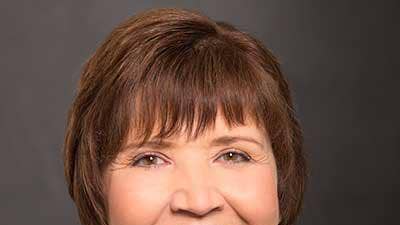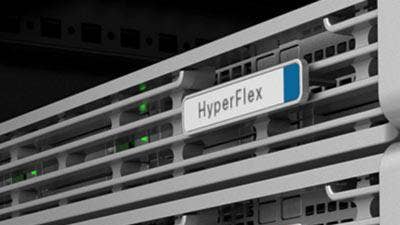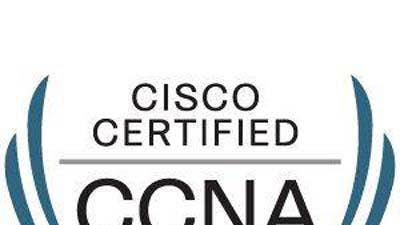Cisco Channel Chief Bahr On Winning In AI And Machine Learning, The Software Services Bonanza And 'De-Fragmenting' The Security Market
Wendy Bahr sat down with CRN to discuss how she is pushing Cisco partners to drive the services, software technology and subscription-based consumption models upon which the networking giant is staking its future.

Pushing Partners For Growth
Wendy Bahr is looking at global market conditions, and she likes what she sees. The Cisco channel chief is encouraged by the amount of cash customers have on their balance sheets, as well as an advantageous interest rate environment that allows them to borrow inexpensively.
With that in mind, Bahr is pushing Cisco partners to drive the services, software technology and subscription-based consumption models upon which the San Jose, Calif., networking giant is staking its future.
In an interview at Cisco's Partner Connection Week conference this week, Bahr said she sees significant opportunity for partners that transition to a services offering centered around automation, analytics and lifecycle management while selling next-generation technologies like Cisco's fast-growing, subscription-based Catalyst 9000 switch family and a security portfolio that continues to gel.
Bahr considers security one of the biggest opportunities for Cisco partners and says the company's security strategy allows it to both gain entry to new clients with individual solutions and expand into an end-to-end portfolio once there. Bahr said Cisco is coming into its own in the security market, and could find itself in a position to battle some of the fragmentation in that space.
What follows is an edited excerpt of Bahr's conversation with CRN.

Cisco is making efforts to tie its security portfolio together. Do you think the company is in a position to lead the consolidation of what is right now a very fragmented market?
We're really excited about the opportunities in security. We think through our acquisitions and innovation we're building out a very robust portfolio, end-to-end, from the edge of the network, through the cloud. It gives our partners an opportunity to enter into the security conversation in many different places. It's a journey. When you have a conversation with a customer about security, you can't go in and say, 'I can do all of your security.' You have to go in and prove yourself. With something like Umbrella, that's an easy opportunity to present a security solution for the Internet. You can go in and say I'll help advise you on security posture if you're talking about ISE or StealthWatch, provisioning, segmenting the network, and that's right in many of our partners' core competency. They are the experts in the network, so segmenting the network, setting that policy in ISE, deploying StealthWatch is an adjacency that makes a lot of sense to many customers who've trusted their partners with the network implementation.

How does that portfolio play in such a wide-open and fragmented market?
What's nice about our portfolio is that we can help de-fragment the very fragmented security industry by affording our partners tons of opportunity to go in at the critical juncture, at critical points in decision making. Once you're in, you're setting the expectation differently. You can help the customer with many, many more things that maybe the customer hadn't necessarily thought of our partners for in the past. It's a bit of a journey, but many of our customers are embracing the security opportunity and many of our customers are saying it's their No. 1 most critical challenge.
Do you feel like Cisco is coming into its own in security right now?
Absolutely. With Talos and the information we're collecting and the threats that we're blocking -- it's in the billions and trillions. Many independent third-party publications have looked to Cisco as best-in-class, not only in detecting, but the speed with which we can remediate, or even prevent, which is what most customers want.

How does Cisco go about securing its portfolio, its routers and other technology?
We have an entire group at Cisco between Talos and our entire InfoSec team working with our business entities making sure our portfolio is rock solid. It's an interesting environment. Security has evolved to a completely different state than it was even five years ago in terms of attacks and hacking. It's an everyday effort for Cisco. We want to assure with the greatest degree of confidence for our customers and partners that what we offer in both our security portfolio and in terms of our products and services are secure. With GDPR now, that is a very hot topic, and I think that's an opportunity for our partners, as well since it's top-of-mind with all the countries in Europe. Now is the time to go in and have that conversation. As policies are being designed where data cannot leave a country, it presents phenomenal opportunity for private cloud build-out. And for multi-cloud, even if it's within a country, how do you want to advise your client on the policies and security ramifications of that strategy?

Do you think something like GDPR will come to the U.S., and if so, what form will it take?
The United States is such a singular, but large country. It's difficult to predict. GDPR in Europe, because of the nature of so many countries and doing business across borders, has a different purpose. It's possible that it would come to the United States, but I think it would be more in our public sector realm than enterprise or commercial.

What are the biggest opportunities for partners in the machine learning space?
For partners to transition from what I consider manual services --- so much of networks in the past have been about architecting the network, literally programming the network -- lots of manual touch, lots of manual intervention. The opportunity can be daunting sometimes to a partner who's invested for years in that modality. With machine learning automation and analytics, there's a chance to shift the value proposition the partner brings to a customer to help them make this transition to digital. Machine learning is the catalyst that causes automation to happen, which causes the customer to be able to take advantage of digital and mine the network for critical data. The partner sits right in the middle of that transition. I think as we go from more manual services to more digital services, it's the perfect opportunity for partners to up their relevance and gain greater intimacy, and at the end of the day, greater profitability.

How much of that is getting traditional partners to change their ways, and how much is bringing on newer partners that are already there?
For the last three years, I've been talking about routes to market, and clearly our resale route is our biggest route. More than 85 percent of Cisco's revenue is through the channel. The partner ecosystem is an amazing route opportunity. We're seeing traditional partners pairing up with our ecosystem partners to provide that kind of opportunity. Sometimes folks who are doing ISV work are naturally inclined to programmability. They developed an application. There's tremendous synergy there and it is our fastest growing adjacent route. We also have IT-as-a-service providers, which can be telcos, but often are bigger systems integrators like Dimension Data, Wipro or Infosys. They have a wealth of resource and talent on their team that do this kind of analytics programmability. We look at IoT, and that space is bringing on net-new partner types. Then there are the marketplaces where we have a lot of our virtualized software, with AWS, or Ingram Micro, as a distributor, for example. When we think of new partner types in terms of resale, those are our adjacent routes to market.

What are the general market conditions that are working in Cisco's favor?
If you've been in this industry long enough, you know it's pretty cyclical. We have our headwinds and our tailwinds. Right now economically -- and this is true globally -- interest rates are at an all-time low in many places. There's more cash on the balance sheet for our customers than we've seen in a long time. When you talk to IDC or Gartner, everyone is predicting growth in IT spend, which hasn't always been the case. Some of the biggest increases in spending we're seeing are in services, as well as enterprise software. It's kind of a perfect storm of economic and technology drivers that present an opportunity for our partners?

What do you need partners to do in order to take advantage of opportunities in software?
First they have to have the desire. They have to understand the end game and know that this is an evolution, not a revolution. The biggest challenge we have is to continue to work the business, which is quite robust, and take this opportunity while the business is powerful and growing to make those investments, hire the customer success managers, develop customer success practices, understand the selling of subscription software versus maybe more perpetual or prem-based and really begin to pick their swim lanes. We have so much opportunity and the breadth of our portfolio is so large that often my best advice to a partner is pick the areas where you really want to focus. Don't spread yourself too thin. Double down on those areas where you think you can drive the most amount of growth and profitability for the business. Be strategic.

Does having that kind of focus make it easier for partners to make a transition to a subscription-selling model?
We're doing everything we can do to assist them. In our customer success organization, we have a lot of assets and enablement like Lifecycle Advantage, which is for the increase in renewals on subscriptions, and that's very powerful. It started as a pilot and now we're well on our way to 900 partners in Lifecycle Advantage. It's all about helping them get in front of the renewal process.

And that's a good place to start?
It's a great place to start. They're used to selling services. They understand that we've been rewarding them with incentives on renewal for quite some time. How do you take that to the next level and make it not an unknown when you get to the renewal stage, but something that you can count on and predict. We've also looked at what we call Success Hub, which is a web site with tons of information -- webinars, videos, templates, ideas on how you build out a customer success practice. Many of our partners have some experience with customer success because they've been doing a Microsoft practice. Ours is a little different because it typically includes hardware and software. That's the nuance that we think is different about Cisco.

A lot of partners we talk to say this is all great, but their customers aren't ready. How should those partners be talking to their customers about software and subscriptions?
You have to start with what makes the most sense to the customer. Look at what we've done with Meraki, with Umbrella, with our collaboration portfolio. Those are the easier conversations to have with a customer about why a subscription model could be in their best interest. For smaller partners, they don't necessarily have the opportunity to build out the systems that allow for subscription-based billing, invoicing. That's why we launched our relationship with ConnectWise, which has turned out to be incredibly successful. Not only have we gotten our existing smaller and some larger partners using ConnectWise, but we've attracted net-new partner types that said Cisco's too complicated. Make it easier. That's what ConnectWise does, and that's pretty much the conversation I've been having with smaller partners about how to get started on this journey.

What's the best way, if there is one best way, for a partner to build a cloud advisory practice?
Certainly take advantage of what we're introducing in terms of cloud advisory. It's the early part of our journey there, but we're putting together our roadmap, templates. We're sharing our intellectual property that our advanced services teams have collected in their process of developing advisory services. Partners are the scaling engine for Cisco. We want as many partners to have a cloud advisory practice as have an appetite to join us on that journey. For us, it's really important that we give them the enablement and the steps to success that lead to building out that cloud advisory practice. Now people are beginning to understand how the multi-cloud strategy is not only good for the customer, but it's going to be really good for the partner as well. It's not going to be a single cloud, and everything certainly is not going to be on-prem, so it positions the partner as that critical trusted advisor.

Where are your public cloud relationships today with AWS, Google, Microsoft and IBM? How do you see them developing?
We have positioned ourselves as being the connector. We had AWS at Partner Summit. We've always had a great relationship with Microsoft and Azure. Being an enterprise company, there are great synergies there. We're continuing to work with many of our partners, many of them have Cisco-powered clouds, which are also a critical element in a multi-cloud environment. I think the relationships are going quite well. It's moved a bit from some of those cloud providers thinking that we had to have an exclusive relationship. The public cloud providers acknowledge that it is a hybrid world. They have come around. It's a big step in the relationship. It's difficult if everyone's not thinking about it from the same perspective. Now, whether we're talking to Google or Azure or AWS or our partners who built clouds, or even our distributors who have marketplaces, everyone understands the key to success here is choice for the customer and us providing the capability to be that integration.

We've heard a bit about the Cisco-Pure Storage-Nvidia 'AI-in-a-box' solution. Tell me a bit about the Cisco-Pure relationship and how it positions you competitively with Dell EMC and HPE-Nimble.
We are all about choice. We’ve always been about choice, particularly in this area. We have a relationship with Dell EMC continuing to support Vblocks. We have a relationship with NetApp, and have for many years now, and we have a great and growing relationship with Pure. Each one brings something different to the table. Each one has a unique value proposition for the end-user customer. For us, that level of choice is what makes it attractive for our partners to go in and position converged infrastructure, or a hyper-converged infrastructure stack. We're pretty excited about those relationships.
Where do you see partners playing with the Cisco-Pure AI solution?
The innovations that Pure brings to the table are intriguing for many partners to leverage AI, to leverage Pure's technology. The close relationship that Pure has with Cisco presents an opportunity for them to go in and position that particular outcome. We're anxious to move forward. Pure has been very aggressive. We're excited to support them in that effort.

What's the 'Cisco-as-a-platform' competition?
That's an innovation competition. It's not a promotion or a program. We're incenting our partners' engineers to go out and design something innovative using Cisco as a platform. It might be dev-net, it might be the network. We're going to have a contest and we're going to award a $100,000 prize and a $25,000 prize. We're going to announce the winner at Partner Summit, so it's starting now and we'll make the decision a few weeks before Partner Summit. We want to showcase the engineers' creativity when it comes to innovation and programmability and developing applications. Being so close to the customer, they have a lot of really unique insight into what's possible there.

You've also got some new promotions around HyperFlex and security, correct?
We will be launching some promotions security and HyperFlex at the beginning of Q4. We're right at the end of our Q3. We can't really give too many details because we want [partners] to close the quarter with the existing promotions and incentives in place. We continually evolve those promotions to ensure that we're top-of-mind with our partners, that we're driving them to the areas where we're seeing the most opportunity for growth, and to position ourselves as competitively as possible in the IT landscape. We do that every other quarter or so.

You're introducing a Master Networking specialization. What are your expectations for that program?
Going into Partner Summit last year, we had several master specializations including collaboration and security. It occurred to us that with the transformation that's happening in the network that it was time to invent a Master Networking specialization to put networking back front-and-center in terms of our partners' robust capabilities particularly as we're transforming to our new Network Intuitive and intent-based. If we ask partners to invest, if we ask them to step up to a higher degree of capability and value, we want to incent and reward them for that. So we created the Master Networking specialization. It comes with special incentives through our Value Incentive Program, VIP. We announced it in November at Partner Summit, and it's now available for partners to take advantage of. We're excited because we see the network as being key to the digital transformation. Ensuring partners keep their skill level evolving with the technology is super important.

You're also rolling out some new elements to your 'industry expertise' program too?
So many customers have said I would really like to talk to partners who have done these kinds of transformations in my industry, whether it's health care, finance, manufacturing. We just added media and education. I get this question about how Cisco can recognize industry expertise, and it's through the success stories and case studies that our partners bring us. We're updating our partner locator so partners and customers can search by vertical industry expertise. We're going to give them a badge that they can put on their collateral and on the partner locator that identifies them as having made these investments. In my travels around the world one of the things partners say helps them in this effort is to hire a non-technical expert from that industry. So if you're in health care, hiring a hospital administrator. If you're in finance, hiring someone who is in strategy and planning for the bank. What it does is it allows them to understand the language and the business imperatives of that industry, then they apply their technology acumen.

Given the way the technology is changing, how can you lighten the investments required of partners to go after new specializations, badges, etc.?
I think it's less about bringing cost down and more about increasing profitability. When I talk to partners about making these kinds of investments, whether it's setting up a customer success practice, getting a Master Networking specialization, or getting an industry expertise, what we're finding is partners who are making those investments are actually differentiating themselves. Their deals get bigger. They have greater relevance and therefore they're not in a bidding war. They're able to provide their value proposition in such a way that the customer is focusing more on the outcome that is going to be driven rather than the price of a particular router, or switch or wireless AP. We've seen that through profitability studies we've done with a third party over the last 16 years. We're finding that while there is an investment needed for all of these things, the ROI is proven out because they're able to grow faster, they're able to do it more profitably and gain more relevance with their customers, which makes them more sticky. It's less about trying to do these things at a lower cost, and more about leveraging these areas of expertise for greater ROI.

When it comes to services, is it more effective for partners to try to cover a lot of ground or focus on specific areas?
Many of our traditional partners can start with that integration of digital network architecture, DNA Center, doing implementation, modernizing the network, getting it programmable for things like ISE and StealthWatch. That's right in their wheelhouse, and there's a whole lot opportunity right there. The speed at which they want to follow that trajectory is going to be based on their business model, their appetite to grow. I'll have some net-new partner types, particularly developer partner types, those writing applications, my ISVs who may decide to start their journey all about applications, programmability, analytics, dev net. I envision some partner will meet in the middle. Other partners will stay in their sweet spot.

Can you give me an example of a partner or partners who have made moves that help to cover a lot of ground in services?
I met with a partner yesterday who was acquired by a traditional partner, Dan Pickett of nfrastructure, which was acquired by Zones. Dan did not sell hardware, and Zones was in the traditional kind of resale. Their business model is really intriguing because they've now blended those capabilities together and they can cover a fair amount of that spectrum with that acquisition. We're going to see across the continuum, traditional partners moving up the stack, new partner types coming in at the top and potentially coming down to the middle and we'll see acquisitions. WWT bought Asynchrony, as an example. Insight bought BlueMetal. That's what we're seeing in the industry. You can partner, you can acquire, you can build it out yourself.

Does your partnership with ConnectWise help bring some of those services capabilities to smaller partners that may not have been able to make that transition otherwise?
That is what we're seeing with ConnectWise. They're taking Meraki, they're taking Spark, they're taking Umbrella. They're taking anything we're building that can be subscription-based and isn't necessarily as hardware-intensive and they're applying their services and their application and their programming, and those can be very small, boutique partners, but they're very powerful in the regions they serve. They have a lot of local presence. They become those trusted advisors. There was, in the old world, an assumption that the bigger you were, the more likely you were to earn a customers business. While there's still great strength in being broad, or having a multi-regional or multi-national footprint, it's not a requirement. Trace3 is a great example of a regional partner who's gone heavy into the consulting world and been very, very successful at it.

What are your expectations for Gerri Elliott, your new global sales chief?
We're excited. She's got experience with IBM, Microsoft, Juniper. She's now going to have marketing in her remit, as well. I'm excited to see how sales and marketing are going to continue to evolve even more closely together. She doesn't actually start until the end of April, but we're excited to welcome her aboard. I'm sure she's going to bring a wealth of new ideas and new opportunities.

If you could ask her to change something, what would it be?
We're having a lot of change at Cisco, right now. I've talked to Gerri a little bit, and I think she's going to come in and listen and observe and understand how we move forward in a really organized manner. What we know about Cisco, being such a large company, and our partners, who are so important, is that we need to move together. I would ask Gerri is that Cisco and our channel have to move together. We have to stay aligned. That's always been a key theme of mine. We're trying to simplify everything we do. We're going to maintain as much alignment between Cisco and our partners as we can, and we want to make sure we evolve our value exchange, how we incent and reward those partners as Cisco's business model is evolving. I'm really excited to have Gerri join the team. I think it's going to be terrific.

How can you get partners to sell more Spark?
It's an evolution. With our acquisition of Broadsoft we are evolving our calling, our meeting, our messaging platforms, and I think in that evolution our customers and our partners see an opportunity to have a conversation about how we're changing how we work together. The opportunity for partners in collaboration is doing that. Change how our customers' teams work together and change how their employees feel about coming to work every day. They want that experience they get as a consumer in the workplace. Our partners will be excited about the evolution of the collaboration portfolio.